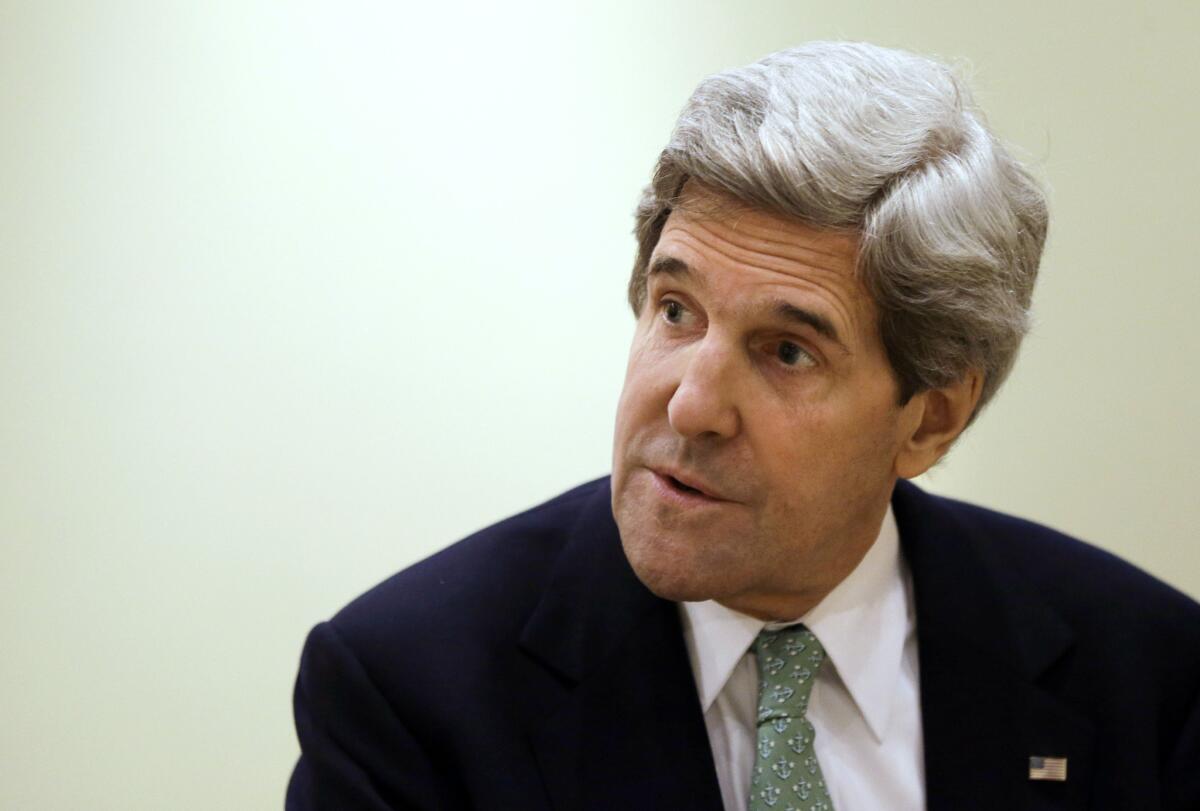A muddled Egypt policy

When both the Egyptian military and supporters of the country’s ousted president are accusing the United States of betrayal, it’s tempting to think that the Obama administration must be doing something right. But in fact, the breadth of the discontent may simply be a reflection of the administration’s inconsistent and sometimes incoherent policy, both before and after the military deposed Mohamed Morsi last month
Last week U.S. Secretary of State John F. Kerry said on Pakistani TV that the Egyptian armed forces were “restoring democracy” when they overthrew Morsi, the Muslim Brotherhood leader who was elected president only last year. That gratuitous comment added insult to the injury of the administration’s refusal to describe Morsi’s ouster as a military coup — a description that would have triggered a suspension of U.S. aid. (Obama has delayed delivery to Egypt of four F-16 fighter jets, a token expression of disapproval.)
That the U.S. would continue its annual infusion of $1.5 billion in mostly military assistance to Egypt was never in serious doubt, given the role the aid plays in bolstering the peace treaty between Israel and Egypt. Even so, Kerry’s comment was unjustified and offensive; previously the U.S. had treated Morsi’s removal as a fait accompli but had stopped short of accepting its legitimacy.
Ironically, in an interview in the Washington Post, Gen. Abdel Fattah Sisi, the head of the armed forces, denounced the U.S. for not embracing what he described as a popular uprising against Morsi. He also suggested that the Obama administration had been remiss in not pressuring Morsi to reach out to his political opponents. “You turned your back on the Egyptians and they won’t forget that,” he said.
The administration understandably feels whipsawed between these two complaints. But both have some validity. The U.S. should have been more vocal in criticizing Morsi’s highhandedness, not only because he was violating democratic norms but also because it was obvious that his actions were tempting intervention by the armed services. Once Morsi was removed, the response of the U.S. — that it was “deeply concerned” by his overthrow — was short on the appropriate indignation. The administration further undermined its credibility when it reacted with muted criticism to attacks on protesters in which scores of people were killed.
In recent days, the U.S has redoubled its efforts to promote compromise in Egypt. This country can’t micromanage political developments in Egypt, but with a more disciplined message the U.S. will have a better chance of nudging all parties in Egypt toward what Kerry called an “inclusive” political evolution.
More to Read
A cure for the common opinion
Get thought-provoking perspectives with our weekly newsletter.
You may occasionally receive promotional content from the Los Angeles Times.










